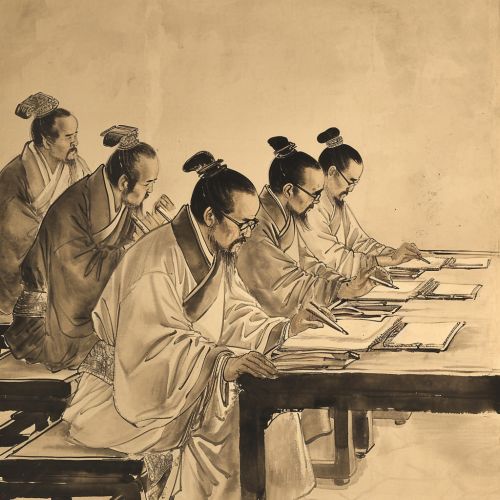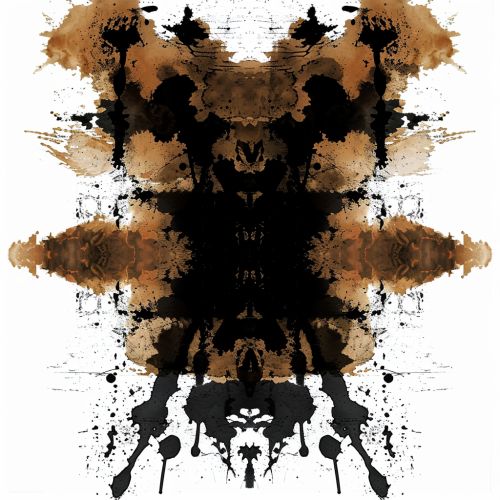History of psychological testing
Origins of Psychological Testing
Psychological testing has its roots in early civilization, where societies used rudimentary forms of testing to evaluate abilities, personality traits, and mental health. The earliest known psychological tests were used in China around 2200 BC as part of the Imperial Examination System. These tests were designed to evaluate the abilities of civil service applicants and included assessments of knowledge, character, and physical fitness.


In the Western world, the origins of psychological testing can be traced back to the work of Sir Francis Galton, a British scientist and cousin of Charles Darwin. Galton's work in the late 19th century focused on the measurement of individual differences, particularly in the areas of intelligence and personality. He is often credited with the development of the first mental tests, which he used to study the heritability of intelligence.
Development of Modern Psychological Testing
The development of modern psychological testing began in the early 20th century with the work of Alfred Binet and Theodore Simon in France. In response to a request from the French government, Binet and Simon developed the first intelligence test, known as the Binet-Simon Scale, in 1905. This test was designed to identify children who were likely to struggle in school, with the aim of providing them with additional educational support.
The Binet-Simon Scale was later revised and expanded by Lewis Terman at Stanford University, resulting in the Stanford-Binet Intelligence Scales, which are still in use today. Terman's revisions included the introduction of the concept of the intelligence quotient (IQ), a measure of intelligence that is calculated by dividing a person's mental age by their chronological age and multiplying the result by 100.
Around the same time, the Rorschach test and the Thematic Apperception Test were developed as projective tests designed to assess personality. These tests involve presenting individuals with ambiguous stimuli and asking them to interpret or tell a story about what they see, with the idea that their responses will reveal aspects of their personality.


Advancements in Psychological Testing
The mid-20th century saw significant advancements in psychological testing, with the development of a number of standardized tests designed to measure various aspects of personality, intelligence, and mental health. These include the Minnesota Multiphasic Personality Inventory (MMPI), the Wechsler Adult Intelligence Scale (WAIS), and the Beck Depression Inventory (BDI).
The development of these tests was facilitated by advances in statistical techniques, particularly factor analysis, which allowed for the identification of underlying constructs that could be measured with psychological tests. These techniques also enabled the development of norm-referenced tests, which compare an individual's performance to that of a normative sample.
Current Trends in Psychological Testing
In recent years, there has been a move towards computerized testing and the use of adaptive testing techniques. Computerized adaptive testing (CAT) involves adjusting the difficulty of the test based on the test taker's responses, allowing for more accurate and efficient assessment of an individual's abilities or traits.
There has also been an increased focus on the development of cross-cultural and non-biased tests, in response to concerns about the cultural fairness of many traditional psychological tests. This has led to the development of tests that are designed to be culturally neutral, or that take into account cultural differences in the interpretation of test items.
Criticisms and Controversies
Despite the widespread use of psychological testing, there are a number of criticisms and controversies associated with its use. These include concerns about the validity and reliability of tests, the potential for misuse of test results, and the cultural bias inherent in many tests.
One of the main criticisms of psychological testing is that it often fails to capture the complexity of human behavior and cognition. Critics argue that many tests reduce complex traits to simple scores, ignoring the nuanced nature of human thought and behavior.
There are also concerns about the potential for misuse of psychological test results, particularly in high-stakes situations such as employment or legal decisions. Critics argue that test results can be misinterpreted or used inappropriately, leading to unfair or discriminatory outcomes.
Finally, there is ongoing debate about the cultural fairness of psychological tests. Critics argue that many tests are biased towards Western, middle-class norms and values, and may not accurately assess individuals from different cultural backgrounds.
Conclusion
Psychological testing has a long history and has made significant contributions to our understanding of human behavior and cognition. Despite ongoing criticisms and controversies, it remains a valuable tool in a variety of fields, including psychology, education, and human resources.
